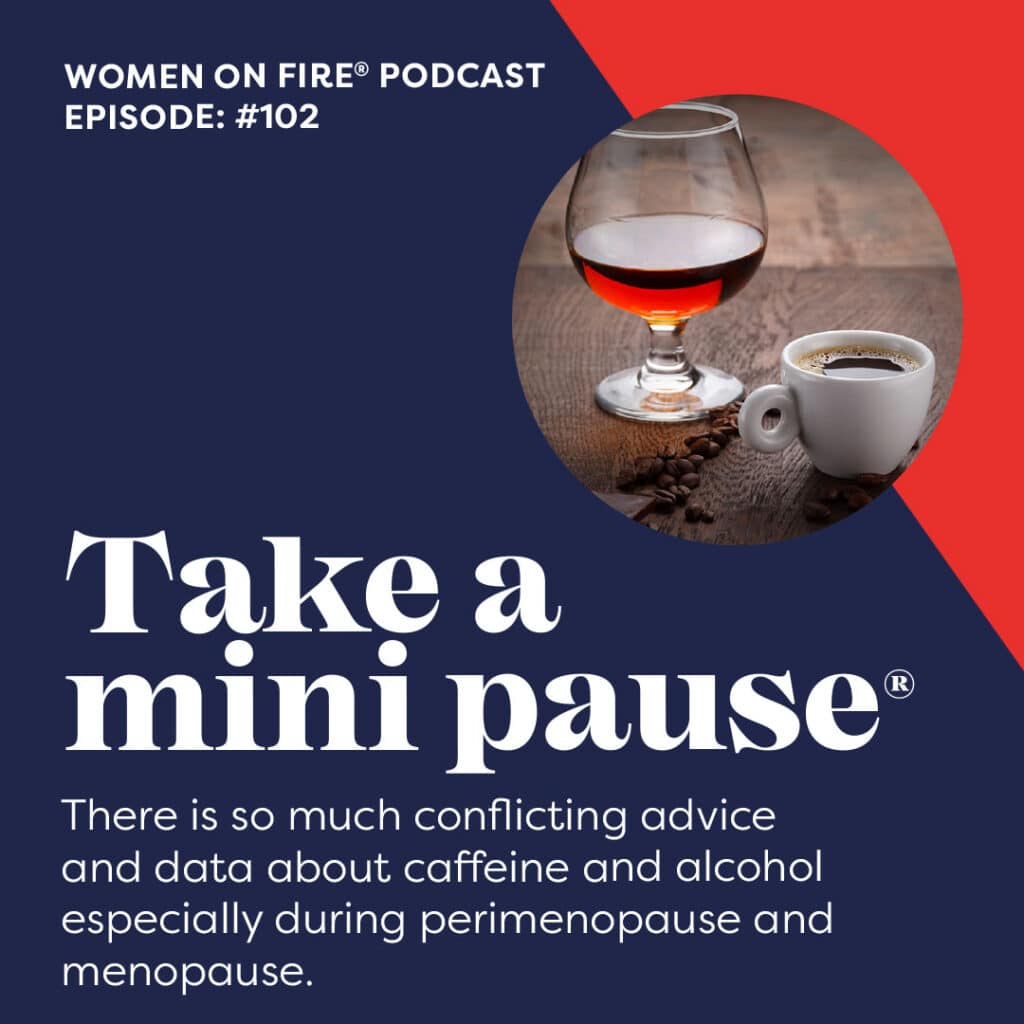Bloated Belly? Here’s Why It’s Happening In Menopause & How To Beat It
sBloat. Even the word bloat feels uncomfortable, right? It’s like your body’s saying “urgh”. When bloating strikes, your tummy can puff

Women On Fire® is sponsored by MenoMe®
Follow MenoMe® on Instagram here.
Follow MenoMe® on Facebook here.
Subscribe to the YouTube channel to watch the interviews here.
We’re honoured you joined us and hope you enjoyed it. If you did, we would be grateful if you would leave us a 5-star review wherever you listen to your podcasts so we can reach as many women as possible with Women On Fire®.
If you would like to contribute to Women On Fire® please contact jenna@meno-me.com for more information.
Welcome to the Women On Fire® Podcast. We’re on a mission to help you have your best menopause and rest of your life.
I’m your host, Jenna Moore. I’m an accredited integrative health and menopause coach and I’ve studied nutritional awareness, women’s hormones through a functional medicine lens and explored various modalities including breath work, mindset and positive psychology.
Join me and my guests as we discuss how to navigate the natural life transition of menopause and growing older. From waistlines, waning libidos and what to wear now we’re over 40 we discuss it all.
Women On Fire® is sponsored by MenoMe®, a New Zealand based company by women for women. MenoMe® specialises in evidence-based, all-natural supplements so you can experience freedom in menopause.
Disclaimer: Our Mini Pause’s are for information purposes only. They come from a holistic vantage point and from collating (often conflicting) scientific data if it’s available. They should not take the place of medical advice.
sBloat. Even the word bloat feels uncomfortable, right? It’s like your body’s saying “urgh”. When bloating strikes, your tummy can puff
Gut Feelings 💙 Q: I’ve got diarrhoea, could it be related to menopause? A: Yes, it could be. If you’re
Food really is powerful when it comes to navigating your peri menopause journey. Whether you’re in peri or post-menopause, what
At MenoMe®, Menopause is our one & only game®. We live and breathe it – ’cause we’re going through it too or we’ve gone through it, and we totally get it! We’ve got your back and we promise to add a sprinkle of laughter to this rollercoaster ride!
Meno-Me Ltd
Unit 3/10 Makowhai Road,
R.D. 12, Hawera,
New Zealand.
Free call: 0508 MenoMe
Email: info@meno-me.com
Contact us here…
MenoMe®, LotsaLocks®, Merry Peri®, Perky Post®, Happy Go Tummy®, Women on Fire® , Mini Pause® and Menopause is our one & only game® are registered trademarks owned by Meno-Me Limited.
affron® is a registered trademark of Pharmactive Biotech Product, S.L.U.
keraGEN-IV® is a registered trademark of Keraplast Manufacturing.
Livaux® is a registered trademark of Anagenix IP Limited.
This is the time when menstruation is well and truly over, the ovaries have stopped producing high levels of sex hormones and for many ladies, perimenopause symptoms subside.
Estrogen has protective qualities and the diminished levels mean organs such as your brain, heart and bones become more vulnerable. It’s also a key lubricant so your lips may become drier, your joints less supple and your vagina might be drier. In addition, your thyroid, digestion, insulin, cortisol and weight may alter.
At this juncture, a woman might experience an increase in the signs of reduced estrogen but she should have a decrease of perimenopause symptoms. That said, some women will experience symptoms like hot flushes for years or even the rest of their lives.
Peri = ‘near’
Most females begin to experience the symptoms of perimenopause in their mid-forties. Your progesterone levels decline from your mid-30s but it’s generally from around 40 that the rest of your sex hormones begin to follow suit.
Perimenopause is a different experience for every woman and some women may barely notice it. The first indicators are usually changes to the monthly cycle. This means that for some ladies, this can be accompanied by things like sore breasts, mood swings, weight gain around the belly, and fatigue as time goes on.
For those with symptoms it can be a challenging time physically, mentally and emotionally.
Importantly, perimenopause lasts – on average – four to 10 years. The transition is usually a gradual process and many women enter perimenopause without realising.